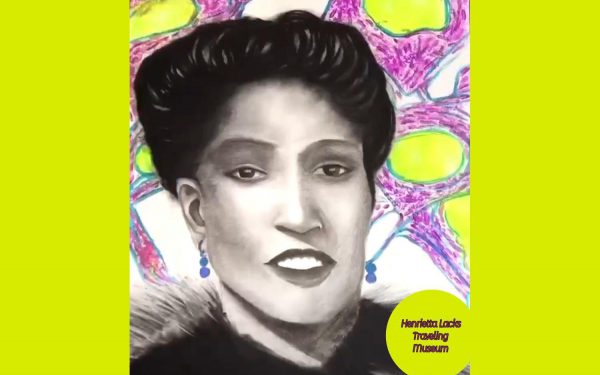
whose cells have led to multiple medical breakthroughs.
A traveling museum and lecture dedicated to the history and legacy of a Black woman who has been key to multiple medical breakthroughs is coming to Kalamazoo College on Thursday, February 17.
Jermaine Jackson, Henrietta Lacks’ great-nephew and a Kalamazoo resident, will provide a lecture and question-and-answer session exhibiting the Henrietta Lacks Traveling Museum from 6–8 p.m. at the Arcus Center for Social Justice Leadership.
Johns Hopkins Hospital was treating Lacks for cervical cancer in 1951 when her cells were sent to a nearby tissue lab without her consent. At that lab, doctors found her cells to be unlike anyone’s they had ever seen. Instead of dying, her cells—later called HeLa cells—doubled every 20 to 24 hours.
Although Lacks died of cancer on October 4, 1951, at age 31, her cells continue to benefit the world. HeLa cells are used to study the effects of toxins, drugs, hormones and viruses on the growth of cancer cells without experimenting on humans. They’ve also been used to test the effects of radiation and poisons, to study the human genome and learn more about how viruses work, playing a crucial role in the development of the polio and COVID-19 vaccines.
Lacks’ story speaks to issues such as global health, scientific research, bioethics, patient rights and equity. The event is free and open to the public.
